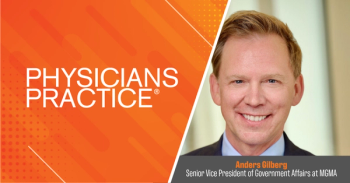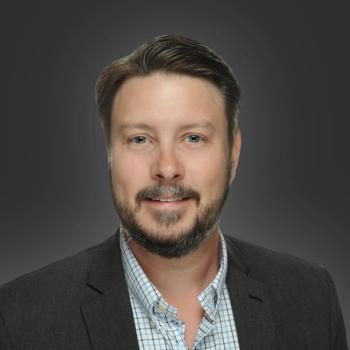
Top 3 financial challenges young doctors face
High incomes don’t grant immunity from financial challenges.
As a physician, you more than pay for your ability to earn a high income with decades of studying, sweat, sleep deprivation, personal discipline, and of course, money. But simply having the ability to earn a high income doesn’t grant you immunity from financial challenges-especially when your career is just getting started.
What exactly do you need to look out for when it comes to your finances? What challenges can you expect to encounter?
1) The Uncertain Future of Healthcare
To a degree, some uncertainty in life is inevitable. None of us can predict the future or how it will affect our well-laid plans. The best we can do is evolve and adapt to thrive in our changing environment.
Unique to physicians, though, are concerns about the changing face of healthcare. How will the evolving industry affect your livelihood? How about the way you conduct business and support your family?
With the political division over Medicare for all, physician compensation trends in value-based care, broad-based consolidations, and transparency and convenience dominating consumer preferences, the traditional model of providing care is becoming outmoded. And what’s more is that no one is certain when or where the dice will fall on many of these issues.
We have already seen staffing shortages, an increase in the use of outpatient facilities and urgent care clinics, a rise in popularity of “telehealth” options, and accelerated mergers and acquisitions of smaller firms into larger ones. But
The good news is that all of these new options in the healthcare realm mean any physician can choose a career path that best fits his or her changing needs. Perhaps you will choose to travel and accumulate a healthy savings before putting down roots with a family. If a family isn’t yet in the cards, you may choose to work in a higher-risk environment or less desirable geographic location for a period of time and reap the monetary reward for doing so.
As a young doctor, you can use the changing landscape to your advantage, but will need to mind your future plans, as well, in order to gain the financial footing necessary to carry you there.
2. Getting a Later Start
Every career path comes with its own balance of risks and rewards, challenges, and payoffs. Young doctors, though, must pay hefty education and residency dues upfront long before entering the workforce and beginning to earn an income.
When the time finally comes to put their education to work and start seeing a positive cash flow, many of their peers have already begun building their lives, starting families, and stashing money away in retirement accounts. In reaction to this reality, we have seen many young doctors go one of two routes: (1) they either forego savings to “catch up” to those around them, buying homes and cars in lieu of saving (2) or they begin saving but fail to recognize that they have fewer years to accumulate the appropriate income to live a comparable lifestyle in retirement.
The unfortunate result is that many physicians today are too financially strapped to retire with their peers. Physicians earn above average incomes for the majority of their careers, but they also face heavier income tax burdens, contend with student loan debt, are forced to pay high premiums for a host of different personal and professional insurance policies, and lose out on many precious years when compound interest could have been working its magic on invested principal.
As you read this article, scores of baby boomer physicians are currently working into their seventies and unsure when they will be secure enough to finally start phasing out of their careers. Not only are they struggling with workplace burnout, but are contending with the very real possibility that they may be forced to live a diminished lifestyle in what was supposed to be their “golden years.”
In order to avoid this commonplace reality, you will have to do some serious strategizing. You will be need to balance paying off student loan debt and financing the life you desire with making heftier retirement plan contributions. Keep in mind, you’ll want to begin making these larger contributions as early as possible in order to make up for the precious compounding years that were lost while you were in school.
3. Paying off Student Debt
While some physicians are lucky enough to receive scholarships, grants, or familial support to help offset the costs of their education, most physicians enter the workforce carrying a significant amount of debt on their shoulders. According to the Association of American Medical Colleges, the average medical student debt balance for graduating students in 2018 was $196, 520 not including undergraduate debt. With total undergraduate debt, this number could easily tally anywhere in the $200-400K dollar range.
Physicians are faced with a two-fold problem: they don’t start earning an income until later in their lives (likely into their thirties), and once they finally begin seeing a cash flow, they are already in a deficit due to student loans. Depending on a new doctor’s plans and goals for the future, he or she will need to map out short and long term priorities in order to decide where and in what proportions to allocate income to satisfy building a life (and/or practice), paying off debt, and saving for the future.
As a physician, you must pay close attention to your finances right out of the gate. Your late start, student debt, and changing industry demand it.
About the Author
Julianne F. Andrews , MBA, CFP®, AIF® began her career in financial planning in 1988 and co-founded Atlanta Financial Associates in 1992, merging into Mercer Advisors in 2020. She specializes in working with physicians and executives in the healthcare industry. Her passion for working with physicians comes from being a pediatrician’s spouse for more than three decades. Julie has been featured on Forbes’ list of America’s Top Women Wealth Advisors since 2017 as well as Forbes’ Best-in-State Wealth Advisors since 2018. Julie can be reached at jandrews@merceradvisors.com .
Newsletter
Optimize your practice with the Physicians Practice newsletter, offering management pearls, leadership tips, and business strategies tailored for practice administrators and physicians of any specialty.






